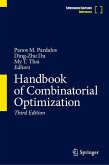
Broschiertes Buch
3. Aufl.
28. Dezember 2026
Springer / Springer New York / Springer Science+Business Media, LLC / Springer, Berlin
89281297,978-1-0716-5016-5
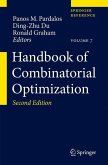
Gebundenes Buch
2. Aufl.
7. September 2013
Springer / Springer New York / Springer Science+Business Media, LLC / Springer, Berlin
978-1-4419-7996-4
Broschiertes Buch
4. Aufl.
5. Januar 2024
Humana / Springer International Publishing / Springer Science+Business Media New York / Springer, Be
978-3-031-45597-1
| eBook, PDF | 136,95 € |
Ähnliche Artikel

Gebundenes Buch
Polyhedra and Efficiency
2003
10. Dezember 2002
Springer / Springer Berlin Heidelberg / Springer, Berlin
10874786,978-3-540-44389-6
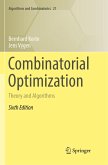
Broschiertes Buch
Theory and Algorithms
6. Aufl.
11. Januar 2019
Springer / Springer Berlin Heidelberg / Springer, Berlin
978-3-662-58566-5
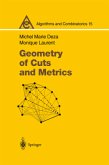
Gebundenes Buch
1997.
20. Mai 1997
Springer / Springer Berlin Heidelberg / Springer, Berlin
978-3-540-61611-5

Broschiertes Buch
Theorie und Algorithmen
3. Aufl.
22. August 2018
Springer Berlin Heidelberg / Springer Spektrum / Springer, Berlin
978-3-662-57690-8

Broschiertes Buch
2. Aufl.
21. Dezember 2011
Springer / Springer Berlin Heidelberg / Springer, Berlin
978-3-642-78242-8
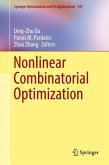
Gebundenes Buch
14. Juni 2019
Springer / Springer International Publishing / Springer, Berlin
978-3-030-16193-4

Broschiertes Buch
Eine Einführung in Theorie und Anwendungen
1994
1. September 1994
Vieweg & Teubner / Vieweg+Teubner Verlag
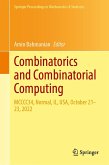
Gebundenes Buch
MCCCC34, Normal, IL, USA, October 21-23, 2022
23. Dezember 2025
Springer, Berlin; Springer
89231474

Broschiertes Buch
Mathematische Grundlagen
2001
1. April 2001
Birkhäuser / Birkhäuser Basel / Springer, Basel
978-3-7643-6519-6
Ähnlichkeitssuche: Fact®Finder von OMIKRON
